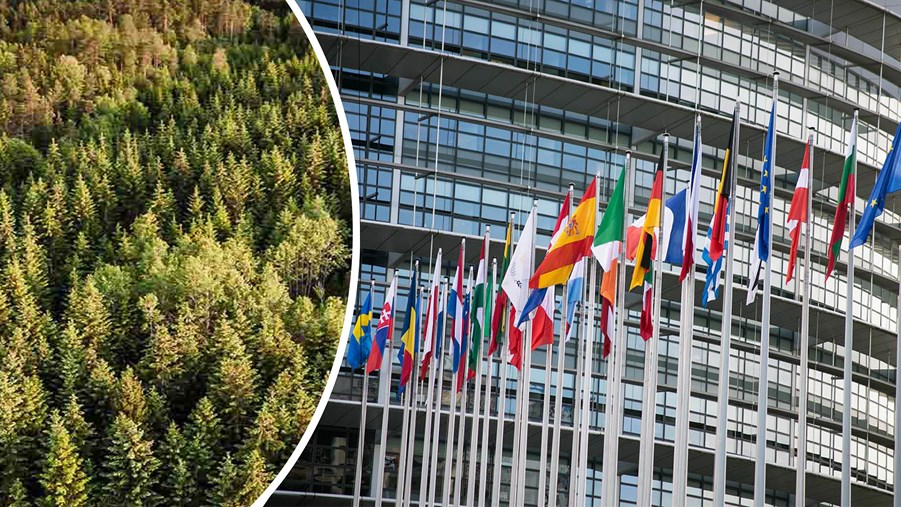
Estonia, Latvia, Finland, and Sweden welcome final agreement on the EU’s new Renewable Energy Directive (RED III), as biofuels are set to play a key role in the phasing out of fossil fuels.
All four countries agree that the RED establishes the necessary regulatory framework for the forest-based sector to maximise the value added and environmental benefit from every tree, brings an end to uncertainty over bioenergy rules, and paves the way for ambitious renewable energy goals.
“We want to extract as much value as possible from each part of every tree, so it’s great to see this incorporated for the whole market with the cascading use of wood in RED III,” says Henrik Välja, Managing Director, Estonian Forest and Wood Industries Association.
“Renewable energy production is – and will remain – an integral aspect of the forest-based bioeconomy because it’s the most effective way to generate heat in the Baltics and Nordics. It also supports the growing of diverse forests by creating a market for every part of the tree,” Välja adds.
The cascading principle included in the final agreement is an important element for the forest-based industry. It seeks to ensure that raw materials are used in ways that maximise value and resource effectiveness – one of the key concerns of Nordic and Baltic forest-based sector.
"RED III is a good compromise between promoting the production of value-added wood products from the logs and continuing stable supplies to the energy sector," says Kristaps
Klaus, vice president of the Latvian Forest Industry Federation.
Finland and Sweden welcome the clearly defined and implementable sustainability criteria in RED III, and how it removes uncertainty over rules relating to biomass. One fifth of Sweden’s district heating energy demand is met from forestry.
“We’re delighted that Europe aims to phase out subsidies for burning wood materials that are suitable for industrial use,” says Paula Lehtomäki, Director General, Finnish Forest Industries Federation.
Lehtomäki adds that it is preferable to use wood primarily for products that have climate benefits, such as storing carbon and replacing emission-intensive products.
“Ensuring competitiveness through sustainable forest management that protects and supports biodiversity is as important as the cascading principle. We therefore welcome the clearly defined and implementable sustainability criteria in RED III,” says Viveka Beckeman, Director General of Swedish Forest Industries.
“Biofuels is an efficient and sustainable way of using the sidestreams or parts which can not be used for more longlived products and play an important role is the green transition, Beckeman adds.

